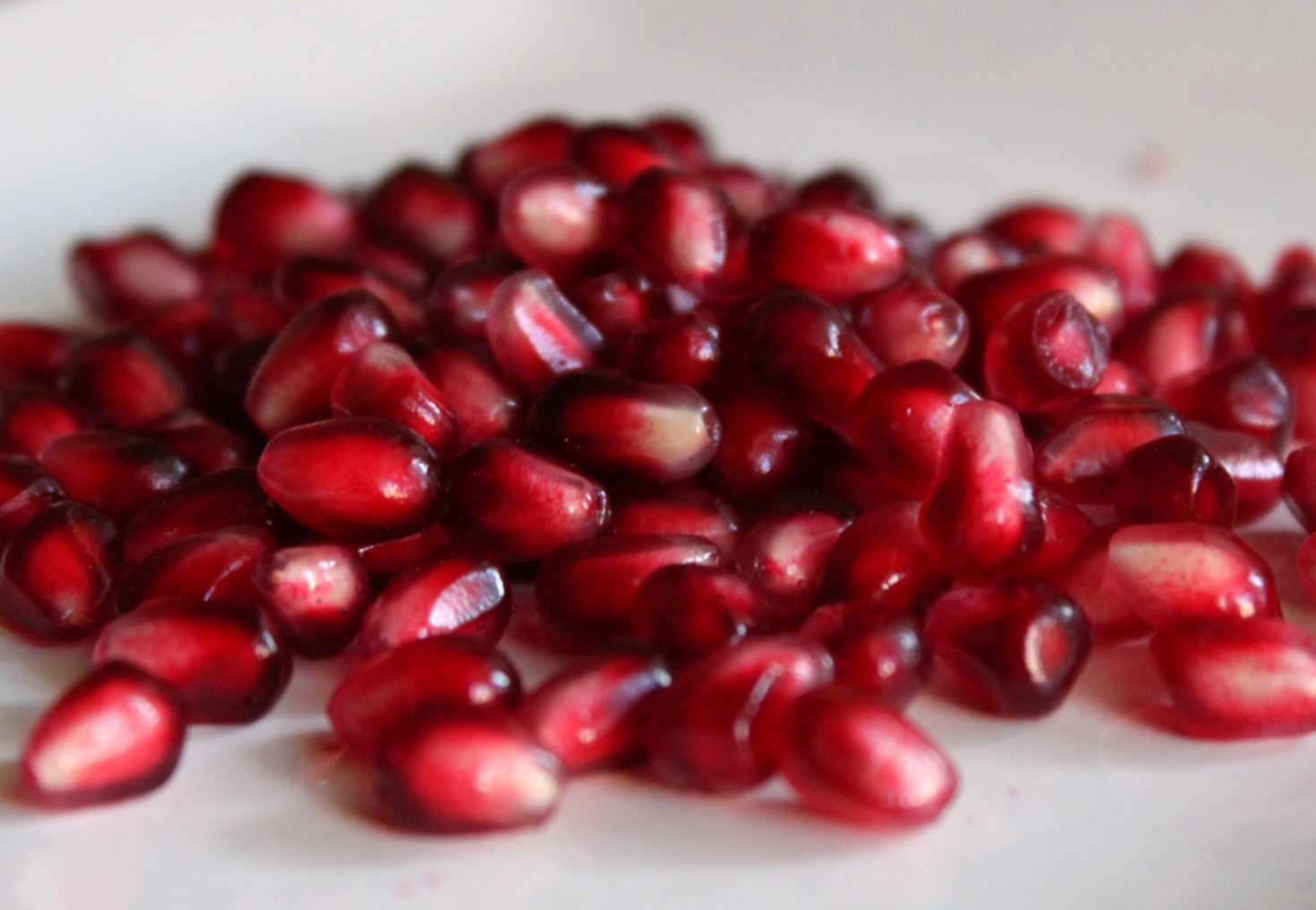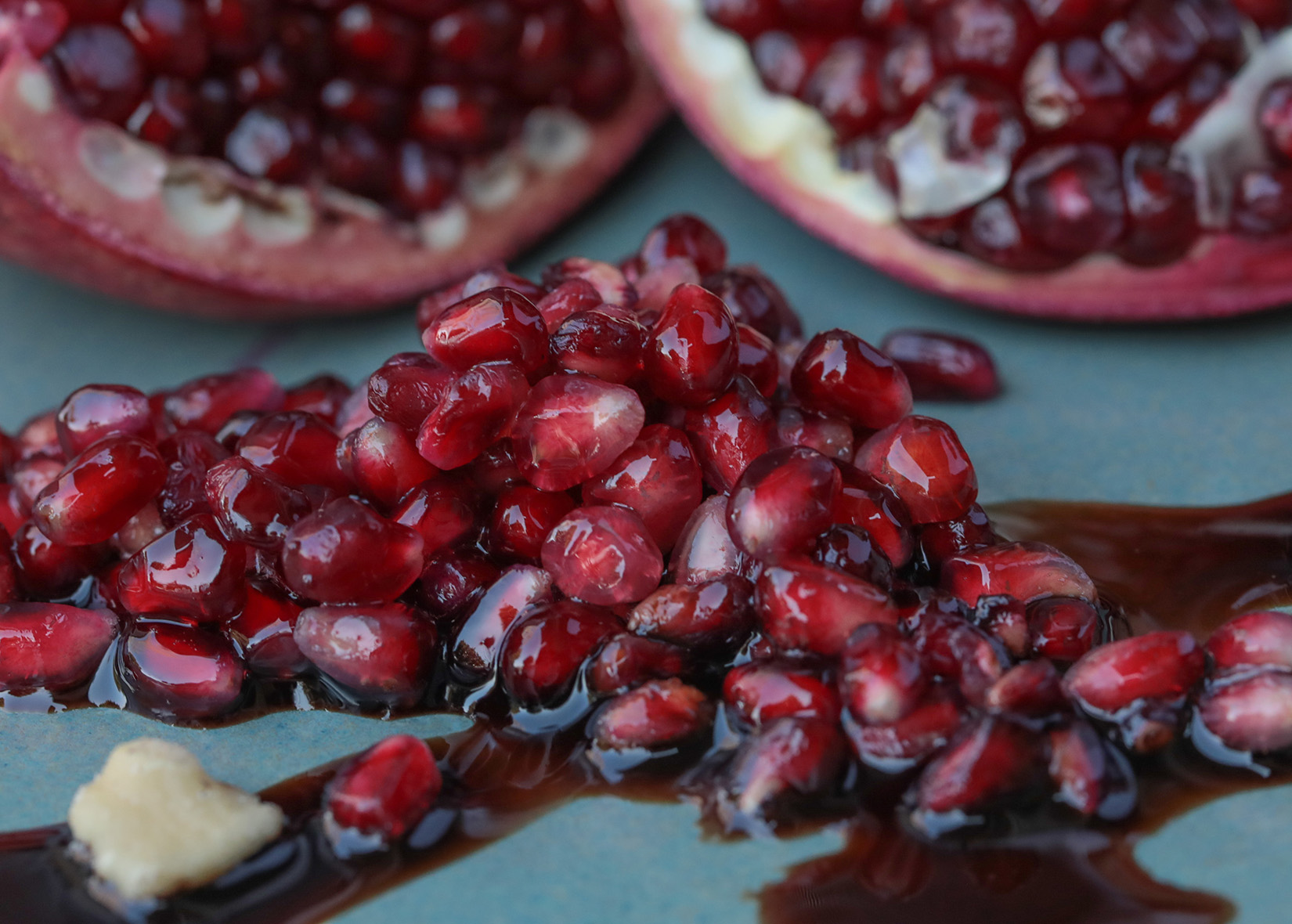Have you ever savored the exquisite flavor of pomegranate seeds only to find a fleeting resemblance to another world? A culinary curiosity is whispered about among food enthusiasts: do pomegranate seeds taste like alcohol?
We’ll delve into the fascinating world of taste perception as we begin this savory exploration, learn the science behind the connection, and find the unseen connections between these ostensibly unrelated flavors. Join us as we explore this riddle and determine whether pomegranate seeds actually contain a trace amount of alcohol’s intoxicating appeal.
Table of Contents
ToggleExploring The Science Behind Pomegranate Flavor
Compounds That Contribute To Pomegranate’s Flavor
When unraveling pomegranate seeds’ complex and captivating flavor, a symphony of compounds plays a harmonious role. Pomegranates have a rich palette of organic acids, sugars, and antioxidants, creating their distinctive sweet-tart profile.
The compounds responsible for the vibrant taste include flavonoids, anthocyanins, and ellagitannins. These elements lend the fruit its characteristic flavors and contribute to its vivid color. As we venture deeper into the enigma of pomegranate flavor, we must consider the intricate interplay of these compounds that form the foundation of its taste.
The Presence Of Ethanol (Alcohol) In Pomegranate Seeds
Amidst the complex symphony of compounds within pomegranate seeds, a surprise guest often goes unnoticed: ethanol, the very molecule that gives alcoholic beverages their distinctive kick. Ethanol, known more commonly as alcohol, is in trace amounts in various fruits, including pomegranates.
While the concentration is nowhere near the levels found in your favorite wine or cocktail, its presence is significant enough to contribute to the overall flavor profile. As we piece together the taste puzzle, this inclusion of ethanol introduces an intriguing layer that bridges the gap between pomegranates and the world of alcoholic beverages.
How Do Trace Amounts Of Ethanol Influence Taste Perception?
The presence of trace amounts of ethanol in pomegranate seeds brings to light the fascinating phenomenon of taste perception. Even in trace amounts, ethanol interacts with our taste and smell receptors, adding to the sensory experience of flavor.
These interactions are not only accidental; rather, they are evidence of how skillfully our taste buds interpret the intricacies of the foods we eat. As we explore the connection between pomegranates and the faint echoes of alcohol, understanding how trace amounts of ethanol can influence our taste perception paves the way for unraveling this intriguing mystery.
The Flavor Compounds Shared By Pomegranates And Alcohol

Examination Of Compounds Present In Both Pomegranates And Alcoholic Beverages
As we journey further into the fascinating realm of flavor connections, we encounter a surprising revelation: pomegranates and alcoholic beverages share a roster of flavor compounds. While pomegranates might not immediately bring alcohol to mind, a closer look reveals the presence of certain molecules that resonate with the world of spirits.
These compounds bridge two distinct flavors, sparking a sensory journey that takes us beyond the obvious and into the nuanced world of taste.
Esters, Aldehydes, And Other Flavor Molecules Creating The Connection
Within the spectrum of flavor compounds, the esters and aldehydes stand out as the common players shared by pomegranates and alcoholic beverages. Esters are responsible for the fruity, floral, and sometimes even slightly alcoholic aromas in various foods and drinks.
On the other hand, Aldehydes add complexity with their diverse range of notes, including those that evoke a subtle sense of alcohol. In the symphony of taste, these molecules are like musical notes that, when combined, create a harmonious chord that resonates with pomegranates and alcohol.
How These Compounds Contribute To The Perception Of An Alcohol-Like Taste?
The interplay of esters, aldehydes, and other shared flavor molecules sets the stage for the intriguing perception of an alcohol-like taste in pomegranates. When we consume pomegranate seeds, our taste buds and olfactory senses detect these compounds, which trigger a sensory memory associated with alcohol consumption.
This shared sensory experience between pomegranates and alcohol can lead to the subtle sensation of an alcohol-like taste. It’s akin to encountering a familiar scent in an unexpected place—a sensory surprise that adds depth to the tasting experience.
Wine And Pomegranate: A Flavor Bridge
Exploring The Flavor Complexity Of Red Wine
To uncover the subtle connection between pomegranate seeds and the world of alcohol, we focus on a beverage that holds its realm of complexities: red wine. Renowned for its intricate flavor profile, red wine offers a harmonious blend of fruity, earthy, and sometimes slightly alcoholic undertones.
As we delve into the nuances of wine tasting, we find an unexpected ally in pomegranates, whose multifaceted flavor composition shares intriguing similarities with red wine.
Overlapping Compounds And Tasting Notes Between Red Wine And Pomegranates
The ties between red wine and pomegranates become even more apparent within the realm of compounds and tasting notes. Both red wine and pomegranates feature compounds like anthocyanins, which contribute to their vibrant red hues and bring forth similar flavor undertones.
The overlapping compounds evoke a sense of familiarity, bridging the luxurious sip of red wine and the burst of flavor from a pomegranate seed. This convergence of shared elements forms the basis for a flavor connection that transcends culinary categories.
The Potential For Pomegranate Seeds To Evoke Wine-Like Undertones
The intertwining of compounds and tasting notes between red wine and pomegranates raises an exciting possibility: the potential for pomegranate seeds to evoke wine-like undertones. When you indulge in the succulent juiciness of pomegranate seeds, your palate might catch a whisper of the nuanced notes found in a glass of red wine.
It’s not about creating an identical flavor replication but about experiencing a gentle resonance, a subtle echo that adds depth to the taste journey. Pomegranate seeds become a conduit, inviting you to explore the delicate balance between fruitiness and a hint of wine-like sophistication.
Conclusion
In culinary exploration, the unexpected often leads to the most delightful discoveries. As we’ve peeled back the layers of this intriguing mystery, we’ve journeyed through the nuances of taste perception, delved into the scientific interplay of compounds, and uncovered the hidden connections that tie pomegranate seeds and alcohol-like flavors together.
While pomegranate seeds might not transform into a glass of your favorite spirit, the gentle resonance and the subtle echoes of shared compounds offer a symphony of flavors that bridge the gap between these two seemingly disparate realms.

I am a passionate beer connoisseur with a deep appreciation for the art and science of brewing. With years of experience tasting and evaluating various beers, I love to share my opinions and insights with others and I am always eager to engage in lively discussions about my favorite beverage.
















